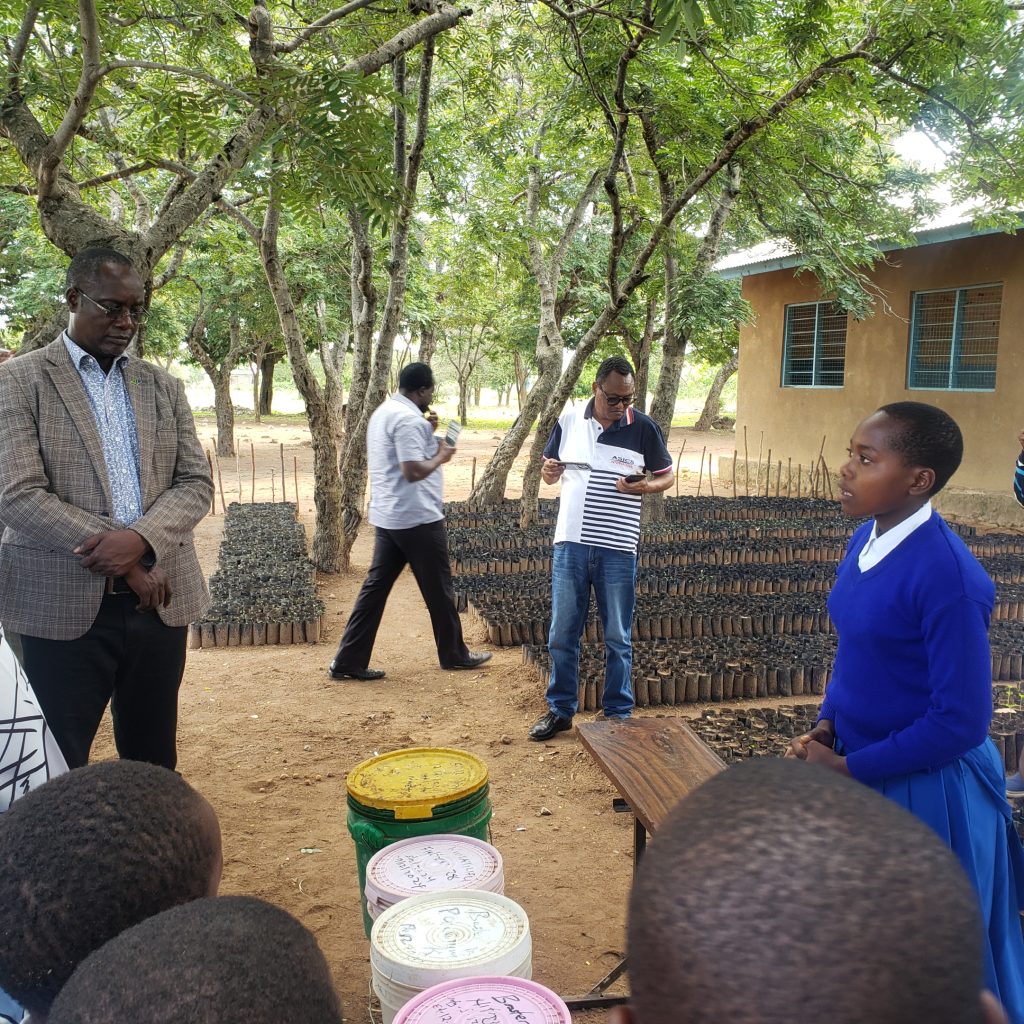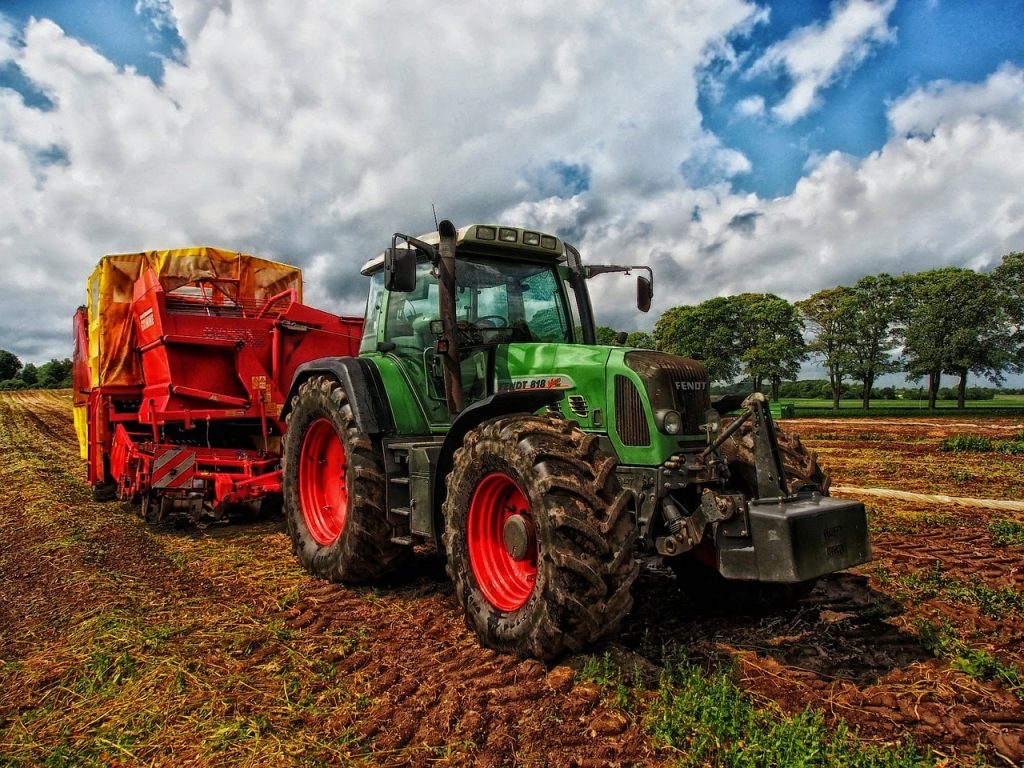Suppose we are to make agriculture the backbone of our nation in its truest sense. In that case, we must learn from an adage that, as the twig is bent, so is the tree, by investing in the skills and enthusiasm of young people to learn modern agricultural techniques, as exemplified by the Ukijani project in the Simiyu and Singida regions.
Since the early years of our nation’s independence, agriculture has emerged as the primary means of self-reliance.
It allows the nation to achieve food security, generate surplus for export, and earn foreign currency through agricultural products.
Given the vast arable land available in the country, it is no surprise that agriculture has been declared the backbone of this nation, akin to how the spine supports the human body; without it, one cannot expect to be healthy.
To truly become the backbone of Tanzania, various efforts have been made, starting from the Iringa Declaration, with the emphasis on “Siasa ni kilimo”, literally translating any meaningful politics should focus on agriculture, through Kilimo kwanza (agriculture first) campaign to the most current Building Better Tomorrow (BBT) initiatives.
However, we have still not done enough to leverage the existing agricultural opportunities to benefit our nation fully from agriculture and its possibilities.
Perhaps if we revisit the beginning and redraw the map of how we can benefit from agriculture as a nation, we can focus on what the Ukijani project is doing. This can put our agriculture on the global map, especially in these challenging times as the world struggles to tackle the climate change crisis.
We can promote sustainable agriculture using readily available local resources found in the environment of nearly every Tanzanian.
To illustrate my point, I will share a testimony I gathered from the children of Solya Primary School in Manyoni District, Singida Region.
READ RELATED: How Agriculture Sector Act as a Center Bolt to Other Sector’s Development in Tanzania
Through the Ukijani project, an initiative funded by Helvetas, the school has established an Environmental Club. Through various training sessions, the club has equipped the children with the skills to manufacture organic fertilizers and pesticides.
Immaculate Raphael, a 13-year-old standard six student, has already mastered the art of making Plant Tea. She says it contains three essential nutrients for plant growth: nitrogen (N), phosphorus (P), and potassium (K), commonly known among farmers as NPK.
“This organic fertilizer is soil-friendly and contains high levels of NPK, which provides ample nutrients to the plant. It can be applied through spraying or watering,” explains Immaculate, noting that she creates this fertilizer using chicken manure, water, and biomass (a mixture of molasses, Effective Microorganisms EM, and water).
Cecilia Adam, also a 12-year-old sixth-grade student, has used a blend of plant leaves, biomass, and water to create a nitrogen booster that, she states, primarily strengthens the plant’s branches.
“This nitrogen booster helps the plant to be greener, as the green colour in plants is involved in food production. Thus, this booster aids the plant in creating its food,” says Cecilia, adding that this knowledge has enabled her to create boosters for her family’s home garden.
Leah Adam, an 11-year-old standard five student, can produce a potassium booster using fruit scraps, molasses, and biomass. She explains that this organic booster, free from harmful chemicals, has significant benefits for agriculture and human health, as it poses no health risks to consumers of the crops, unlike chemical fertilizers.
“The potassium booster is plant-friendly and is used when the plant is about to flower to prevent the flowers from dropping and assists in strengthening the fruit, helping it to maintain its natural shape,” Leah states.
The skills of these students extend beyond fertilizers and nutrients to the creation of organic pesticides. Nicolaus Moses, a 12-year-old standard six student, specializes in making these pesticides, using ingredients like lemongrass (mchaichai), ginger, garlic, neem leaves (mwarobaini), hot pepper, lemon juice, biomass, molasses, and spirit.

“This works against three pests: the locusts that cut plants, caterpillars that eat the leaves, and sap-sucking insects. The glucose in the plants helps produce food, and when sucked out, it affects the plant’s ability to generate food,” Nicolaus explains.
The chairperson of this environmental club, Diana Samula, states that there are currently 24 members receiving various training. Besides learning to create fertilizers and pesticides, they have also been trained to nurture different types of trees and educate the community about trees that improve soil quality.
“We have received many beneficial training sessions that have equipped us with knowledge about sustainable agriculture. All these students who can create organic fertilizers and pesticides are capable because we are taught that these skills are vital for our lives.
I dream of starting an organic fertilizer factory based on the skills I have gained, especially since these raw materials are available in our surroundings,” says Diana, a sixth-grade student aged 12.
“What these children are doing is inspiring, and we, as a project, are truly encouraged that our decision to send a teacher to learn sustainable agricultural methods focused on investing in these children has enabled their families and the entire community to start transforming.
It is uplifting that these children have been applying what they have been taught. This inspires us to continue investing in youth so that eventually, the entire nation can become greener,” says Shoma Nangale, the manager of the Ukijani project.
Manager Shoma elaborates that empowering these children ensures the sustainability of the project’s goals, which will benefit the local community and the nation in the long term.
The skills these students have acquired cannot be fully acknowledged without mentioning Teacher Richard Beda, who is specifically trained to teach sustainable agricultural techniques at the school.
Teacher Beda has received training in sustainable agriculture at the St. Joseph Sustainable Organic Farm in Mwanga District, Kilimanjaro Region.
He states that the Ukijani project enabled him to study at this institution to equip young people with sustainable agricultural techniques. “We are passing this knowledge to the children because they are the future of our nation.
The world now demands organic produce, and for Tanzania to compete, we need to achieve food security with organic produce that everyone worldwide seeks. If these children are nurtured with the skills they gain here, they will greatly assist our nation,” says Teacher Beda.
Teacher Beda’s insights offer a fresh perspective on our agriculture. I ponder the history of this esteemed institution and wonder why we have not utilized it effectively as a nation.
With the knowledge available at this institution and the presence of raw materials for creating fertilizers and pesticides, why has our nation not decided to leverage the expertise found here?
Reflecting on the history of this institution, it is evident that we can benefit from it far beyond our current capacity as a nation. The St. Joseph Sustainable Organic Farm was established under the Society of Mangalore Africa Mission (SMAM) Trust, which operates under the auspices of the Catholic Diocese of Same. SMAM’s mandate encompasses four key areas: pastoral-spiritual, education, healthcare, and socio-economic development.
In education, SMAM manages the St. Joseph Boys’ Science Secondary School, conducts holiday tuition classes for local students, and offers scholarship programs.
The organization also founded the RUPERT Children’s Home to provide a supportive environment for students from distant areas. In healthcare, SMAM is dedicated to enhancing community health services.
Its socio-economic initiatives include cooperative savings programs, solar light distribution, and housing projects for the underprivileged.
To further empower the local community, SMAM launched the St. Joseph Sustainable Organic Farm to train farmers and youth in organic farming and rural technologies. It is from this foundation that the SJS Organic Farm was born.
Giving our agriculture a new interpretation is essential, especially as the Ukijani project is carrying it out. Experts tell us that investing in children is investing in the nation’s future.
We need to act swiftly and genuinely assist our people in changing their perception of agriculture. Agriculture is undeniably essential to our nation’s life, and Mwalimu Nyerere was right to establish it as the backbone of our nation.
Unfortunately, our agriculture currently lacks that prestigious status. However, observing how the children of Solya Primary School are positively redefining agriculture, we have no choice but to reinterpret our agriculture as a nation through the lens of what these children in the school’s environmental club are doing.
Perhaps, as suggested by Manyoni District Commissioner Dr. Vincent Mashinji, with the skills these children possess, there is a need to establish this school and others as specialized institutions for organic farming, considering the importance and necessity of organic agriculture in today’s world.
As the Helvetas-managed Ukijani project in the Simiyu and Singida regions demonstrates, we can transform our agriculture and give it a fresh start.

